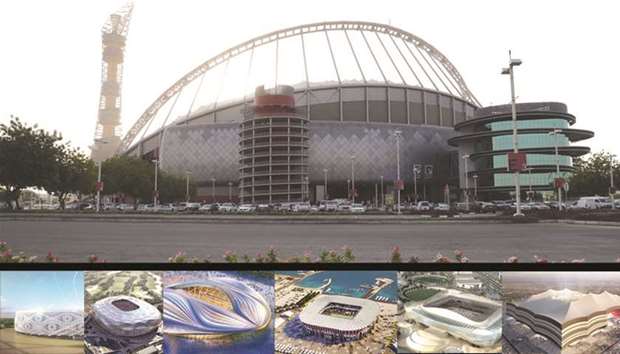“I think it is going to be a unique opportunity. The fact that it is unique and a very different type of World Cup is going to catch everyone’s curiosity,” Qatar 2022 Supreme Committee Assistant Secretary-General Nasser al-Khater has said.
The interview with four media outlets, including DPA, was a rare public appearance, with Qatar’s activities concentrated in Moscow and St Petersburg between July 7 and 15.
“We wanted to make sure that we were also very respectful, we didn’t want to be sort of too obvious so we decided to leave it until towards the end of the tournament,” al-Khater said.
FIFA president Gianni Infantino, said, “You could bring some people to talk with each other who have communication problems. Maybe it is easier to discuss football than problems,” Infantino said.
Al-Khater has said a 48-team event would be “doable,” with a decision expected in early 2019.
For now, though, the plan is for 32 teams to play in eight stadiums, with four of them in the capital Doha and none of the others more than 35 kilometres away.
Qatar has pledged state-of-the-art facilities, including cooling systems in the arenas, although the November and December temperatures don’t average above 30 degrees Celsius, far lower then the 40-plus degrees in summer.
Well-travelled coach Bora Milutinovic, who managed Qatari club Al Sadd from 2004-2005, is impressed with the technology he experienced in Doha’s Khalifa International Stadium.
“Before a match I would be asked: ‘Bora, what sort of temperature do you want for the match tonight?’ I said I don’t care, and they said, ‘So you want 22 degrees, perfect’ — so they just switch on the air conditioning and you get 22 degrees. That’s a great experience,” he said.
Milutinovic expects “a dream World Cup” where “in one day you can watch two matches” because of the short distances between stadiums.
Local organisers will hope to provide an Arabian Nights experience, although al-Khater has already said that the huge amount of fans will make them reconsider their fanfest location in Doha.
“It’s in the wrong spot. It would get in the way actually of [the] free flow of people,” he said.
He added that he hoped to see more fans from Europe in Qatar after many stayed away from Russia, with Doha’s airport a major regional hub and easily reachable from all parts of the world.
Another question-mark is the host team, which has never qualified for the World Cup.
“If our team reaches to as far as Russia has reached, [it] would be a phenomenal triumph for us,” al-Khater said.
Russia reached the quarter-finals, and its acclaimed organisation of the 2018 event will give Qatar something to think about over the next four years.
“They’re going to give us a run for our money, it’s going to be a high bar to beat,” al-Khater said.

(Top) Khalifa International Stadium in Doha will be hosting matches through to quarter-finals at the 2022 FIFA World Cup Qatar. (From left) Computer-generated designs of Al Thumama Stadium, Education City Stadium, Al Wakrah Stadium, Ras Abu Aboud Stadium, Al Rayyan Stadium and Al Bayt Al Khor
